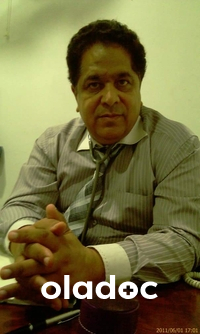Every year when Ramadan comes along, everyone is flooded with questions regarding what to eat, and what not to eat and a need for ramadan guidelines regarding nutrition is felt more than ever.
Unfortunately, many of the foods that are frequently served do not help the body prepare for or recover from the long hours of fasting. In addition, anxiety levels tend to increase due to obsessively thinking about having to go without food and water. It is this same anxiety that leads many of us to overeat at Iftar and Sehri.
Dealing with the anxiety is a personal journey. You have to find techniques that work for you. Ultimately, you need to relax, and realize that you will be okay. As you begin fasting, you may experience withdrawal symptoms if you normally consume large amounts of caffeine and/or sugar. As these symptoms begin to subside, usually so does the amount of anxiety a person experiences.
One way that you can help reduce these feelings is by beginning to eliminate, or at least reduce, sugar and caffeine from your diet before the start of Ramadan, and avoid using them at all or at least keep the amount consumed during Ramadan to a minimum. Another way to reduce the anxiety, is to stop thinking and obsessing about food. Focus your attention on other activities. Planning ahead also helps.
If you can make a 30-day meal plan before Ramadan begins, then go for it. Otherwise, plan 7-10 days ahead of time so that you are not spending your time thinking about what to make and what to eat. So that part is done. Now let’s focus on a couple of important points for Sehri, Iftar, and dinner.
Table of Contents
Sehri:
While discussing ramadan guidelines, it is important to address sehr as it is the start of the day and many people tend to over-eat and drink at this time.
- Always start the morning with water. Add some lemon, or infuse it with cucumber, lemon, and mint if desired. Just do not add any sugar or salt. Drink the majority of the water before eating, and keep water intake to a minimum during and after the meal has ended.
- Avoid using white flour products and sugar in your morning meals. They are digested very quickly, and do not provide any significant dietary benefit. Avoid jams and other items containing large amounts of sugar. I recommend that you avoid bread altogether, but, if you want to use it, then make sure that you are using bran bread, corn cakes, whole wheat roti, etc. Make the fiber content as high as possible. Adding ground flaxseeds, buckwheat flour, or almond flour will make the breads more nutritious.
- Focus on consuming protein, fruits and vegetables, and complex carbohydrates in moderation. Omelets, shami kebabs, chapli kebabs, smoothies, porridge with ground nuts, hummus, cooked lentils, and cooked beans are all good choices for breakfast.
Iftar:
- I know after fasting all day that you are really hungry, but try to avoid eating too much, too fast. Doing so will only cause you to consume too many calories, which lead to weight gain, and an excess quantity of food consumed, which leads to bloating, and acid reflux.
- When you break your fast, first consume 2-3 dates. Then, focus on drinking water and fresh juices to help rehydrate your body. It is really water that your body needs at this time, more than excessive amounts of food. This will help restore blood sugar levels and rehydrate you. This is a good point to stop and say Maghrib prayer.
- After Maghrib prayer, if desired or needed, consume some foods that are easy on the stomach and that have high vitamin and mineral content to help replenish your body. Foods such as soup, fruit salad, yogurt, and kebabs are all good choices.
- Use a small plate and bowl to help keep yourself from over eating, and try to eat slowly. Remember, you will be eating again later in the evening, so don’t over-consume now.
- Avoid fried foods, fast foods, and processed foods at this time. While I know many cultures have some traditional items such as pakoras and samosas, consuming them each and every day of Ramadan or in large quantities really is not a good thing.
Dinner:
- Don’t rush right into dinner immediately after Iftar/Maghrib prayer. It is better to take dinner after Isha prayer, or at least one hour after Maghrib prayer in order to allow your stomach to recover and rest a little while.
- Keep your plate balanced and don’t over-eat. Make half of what you eat vegetables, both fresh and cooked. The remaining half is divided between protein and complex carbohydrates.
- Avoid foods cooked in excessive quantities of oil. Our body does need healthy fats, but only the right ones in the right quantities. Curries should not be drowning in oil. Use the type of fat that is most suitable for what you are cooking, and use the minimum amount needed.
- Other high sugar and high fat foods such as gulab jaman, jalebi, barfi, kheer, pasties, desserts, etc should be avoided also. It’s okay to consume them in small quantities once in a while, but not each and every day of Ramadan.
The amount of food you consume during Ramadan should not be significantly different from what you consume the rest of the year. Don’t fall victim to feasting each and every night and morning. Keep your portion sizes sensible, listen to your body and stop eating when you are full. Remember we have all skipped meals from time to time, and we manage just fine.
In Ramadan, you are really only skipping the lunch meal each day. Finally, just as exercise is important the rest of the year, it shouldn’t be completely avoided in Ramadan. Make time for 15-30 minutes of exercise most nights either after Isha prayer or before Sehri. Whether it is walking, barre exercises, HIIT, etc, don’t leave exercise completely.
Book an appointment with a nutritionist in Lahore and Rawalpindi through oladoc.com if you want thorough and personalized ramadan guidelines for yourself. You can also call our helpline at 042-3890-0939 for assistance to find the RIGHT Doctor for your health concerns.











